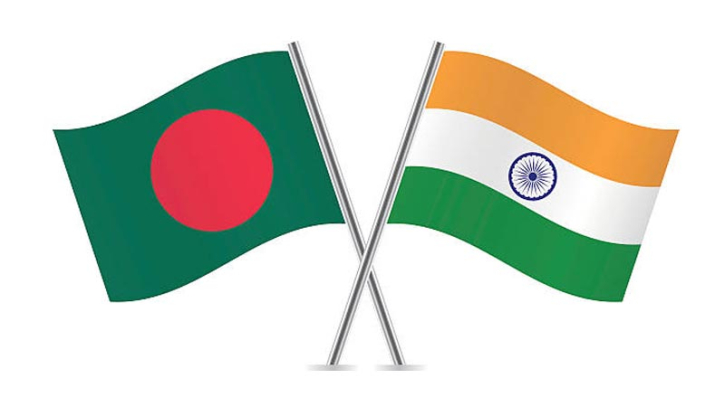Bangladesh-India Relations and Geopolitical Stability

This is now the major question concerning Bangladesh-India relations. Issues like religion, nationalism, riots, conflicts, violence, and discriminatory behavior toward neighboring states have repeatedly arisen in the political landscape of the Indian subcontinent.
Yet, effective solutions to these problems remain elusive. Particularly, the misuse of religion and politics for personal gain—dating back to British colonial rule—continues to plague the domestic and regional politics of India, Pakistan, and Bangladesh. Recently, Indian media have been spreading misinformation about alleged persecution of the Hindu community in Bangladesh without proper fact-checking. This not only creates concern but also undermines peace, harmony, and unity between the two nations. At a time when maintaining regional stability and peace is paramount, especially after recent political transitions in Bangladesh, one neighboring country's propagation of religious provocation raises serious questions.
Since the fall of the Hasina government, a narrative of Hindu minority persecution in Bangladesh has gained momentum, exacerbated by the arrest of Chinmoy Krishna Das, a former leader of ISKCON. This arrest has led ISKCON supporters to target and kill a Muslim lawyer, Saiful Islam Alif, in Chittagong's court area. Despite the gravity of this incident, Indian media and analysts have remained silent. Instead, their focus seems to be on Chinmoy Das, who was arrested for violating anti-state laws. Groups like ISKCON, Sanatan Hindu Jagran Manch, Sammilito Sanatan Jagoran Jote, Hindu Oikko Porishod, Hindu Shanghosro Samiti and others, while claiming to advocate for humanity and religion, have been suspiciously silent about Alif's murder. No one is saying anything; instead, incidents of rallies and clashes are being organized in Chattogram and Rangpur to destabilize Bangladesh. Moreover, incidents such as attacks on Bangladesh’s consulates, flag desecration, and violence in India—violations of Article 22 of the Vienna Convention—have raised serious concerns about the true nature of Indo-Bangladeshi friendship. Is this relationship solely with a specific political party or alliance in Bangladesh, or is it with the entire population of the country? This question has gained new prominence. Bangladesh is not only India’s close neighbor but also a key geopolitical and geostrategic partner. Citizens of Bangladesh believe that the relationship should be based on mutual respect and dignity. However, repeated attempts by India to exploit religious issues and trap Bangladesh into new conflicts are seen as detrimental to regional stability.
The trade and commerce, geopolitical relationship between Bangladesh and India should be shaped by the people of both nations, not determined by groups like ISKCON or other Hindu nationalist organizations the people of Bangladesh do not expect this. Bangladesh, as a sovereign nation, remains committed to maintaining bilateral relations with all countries based on fairness and dignity. Incidents such as the Hindu nationalist group’s march toward the Bangladesh border at Sutarkandi, and BJP-led protests in Petrapole, threaten bilateral trade and stability. In one instance, BJP leader Suvendu Adhikari demanded the unconditional release of Chinmoy Das, warning that all trade with Bangladesh would be halted otherwise. Symbolically, trade was stopped for 20 minutes during a protest. Such disruptions have already impacted trade across several ports.
Trade activities between Bangladesh and India through five customs stations—Chatlapur and Botuli in Moulvibazar, Tamabil, Zakiganj and Sheola in Sylhet—have been suspended due to protests across the border. An analysis of customs data from nine key land ports in Bangladesh shows that, during the first four months of the previous year, 774.33 million metric tons of goods were imported through these ports. This year (2024), the volume has decreased to 591.17 million metric tons. Bangladesh has declared 22 land ports for trade with India, which 16 are operational. Currently, activities are ongoing at 11 of these ports, while import-export operations at the remaining 5 have been suspended for varying periods. Some ports were used solely for imports, while others facilitated only exports. Beyond these, there are about 50 customs stations through which goods are traded between the two countries. Since August 5, imports from India via land ports have declined, though exports from Bangladesh to India have slightly increased.
The nature and extent of trade between Bangladesh and India largely depend on geopolitics and regional stability. If India views Bangladesh through the lens of a specific political party, the pragmatism of this approach in the post-Monsoon Revolution (July uprising) era needs to be assessed. Similarly, it is evident that Bangladesh is no longer operating under the previous policies and frameworks for international and regional trade. The docking of cargo ships from Karachi, Pakistan, at the Chattogram port has already addressed many unanswered questions. Additionally, the Foreign Affairs Advisor remarked that Bangladesh before August 5 is not the same as Bangladesh after August 5. Bangladesh-India trade relations, with 22 land ports (16 of which are active), play a significant role in the economy. However, recent political shifts in Bangladesh have shown that the country is no longer following its previous policies. Statements by foreign and legal advisors have also indicated that "Bangladesh after August 5 is not the same as before." Therefore, India must carefully evaluate its actions to ensure they do not harm bilateral trade or regional stability, as unrestrained propaganda from Indian media threatens to do. -Source: fresh angleng
.png)









